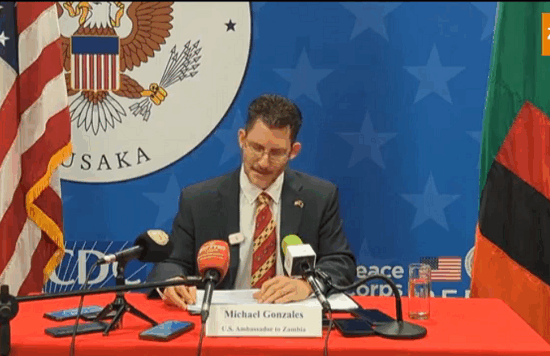
The Cross Border Traders Association at Kasumbalesa border between Zambia and the Congo DR is calling on new Government to step in and bring sanity by ending the extortion and multiple charges that local traders are facing due to lack of an organized system.
Trade between Zambia and DRC remains the most viable and feasible way to drive up demand for Zambia’s agro produce and expand exports by locals but successive governments have failed to restore sanity that would allow smooth and corruption free trade between the two countries.
The chaotic situation at the border has led to genuine Zambian businesses shunning this lucrative trade which has led to large foreign traders mostly from South Africa, Tanzania and other neighboring countries filling the void and taking over the massive trade and export opportunities at the expense of Zambian businesses. It remains to be seen if the new UPND government would be able to fully leverage the DRC opportunity for local businesses.
And the Kasumbalesa Association has called for the conclusion of the matter in which the Chililabombwe Municipal Council obtained an injunction against them for collecting K5 sustainability fee from the cross border traders, which has turned out to be more sustainable that the current situation were there are multiple cadres charging multiple fees to local traders wishing to do business through the border.
Association branch chairperson Raphael Chingeleshi said in 2017, the Chililabombwe Municipal Council took the association to court for allegedly being United Party for National Development (UPND) sympathizers and collecting a K5 sustainability fee from the traders to help the small scale cross border traders.
Speaking in an interview with the Zambian Business Times-ZBT, Chingeleshi said the association were allowed by the Common Market for Eastern and Southern Africa (COMESA) treaty and the Simplified Trade Regime (STR) threshold to collect up to US$2 for sustaining the operations of local traders at the border.
He said the association which has about 800 members, has since 2017, been out of operation, a situation which has affected the local traders who mostly compose the small scale cross border traders as the council obtained an injunction retraining them from operating.
“The reason we were taken to court is that, they accused us of being UPND sympathizers and for collecting a K5 sustainability fee at the border trade information desk. But under the COMESA treaty and STR, we have been given a $2 threshold as a sustainability fee to help with the operations at the border and that is what we were collecting”.
“Where we used to operate from is not the area for the council, what we know is that the council is in charge of bus stations and markets. Us we are and were under Zambia Revenue Authority (ZRA), so if it is to take us to court, ZRA should have been the one doing this, but we were surprised that the council is the one that did this,” Chingeleshi said.
He told ZBT that “we were not allowed to say anything because anyone who said something about this issue was either arrested or shot at. So nothing is working at the moment, we cannot do anything. It would be good if the new Government could come in and help deal with this issue so that we can go back to doing business in the normal and organized way”.
Chingeleshi said most traders end up using un-designated routes to access the market at the border, which they end themselves spending more than required because of the presence of cadres and the association is not there to help them through the process.
He said by the time they reach their destination, they end up losing a lot of money in the process because there are about 10 people charging them on the way. This leads to losses for most local traders.
“Now, because we are not there to guide the traders, they are using undesignated routes where they end up paying a lot for the goods to cross, sometimes they grab their goods from them and sometimes they are charged for that, you find that those charging will be about 10 people before they reach the borderline” he told ZBT.
During the time we were working, there was nothing like this because we had about 35 people who were engaged to control the traders so that they can be using the routes (walkway) the government made for them, now that they are not there, the traders are moving anyhow, without knowing they find themselves in problems.
He said, in the end, the traders end up losing their goods, harassment is high on them, and the money they raise from the sales is not enough to cover their costs because of paying a multiple cadres and gangs. Chingeleshi said the traders are complaining a lot saying when the association was working, they had protection compared to now were there are too many points were carders are charging traders.
He disclosed that most traders are using un-designated routes because there is no one to control and guide them and because they have not knowledge that the Simplified Trade Regime (STR) protects them from paying a lot of money for those who have goods worth below $2,000.
“The STR protects them especially those who have goods worth less than $2000, they just cross the border without paying, now because there is no one sensitizing them, it is hard for them. When we were there, we had people to teach them, but now its hard for us to manage to pay people to teach them,” Chingeleshi said.
He said the new Government should come in to help us correct the situation as there are too many cadres at the border, which is making business for the small scale cross border traders and other local business people hard.
“So this case has stalled everything. We cannot do anything to help our local traders at the moment because every time we try, we are told that we still have a court case.
“We have observed that this new government wants to help small businesses, we would love if the new government can help us with this matter so that we can continue with our duties of helping small scale cross border traders in their day to day business life,” Chingeleshi said.







